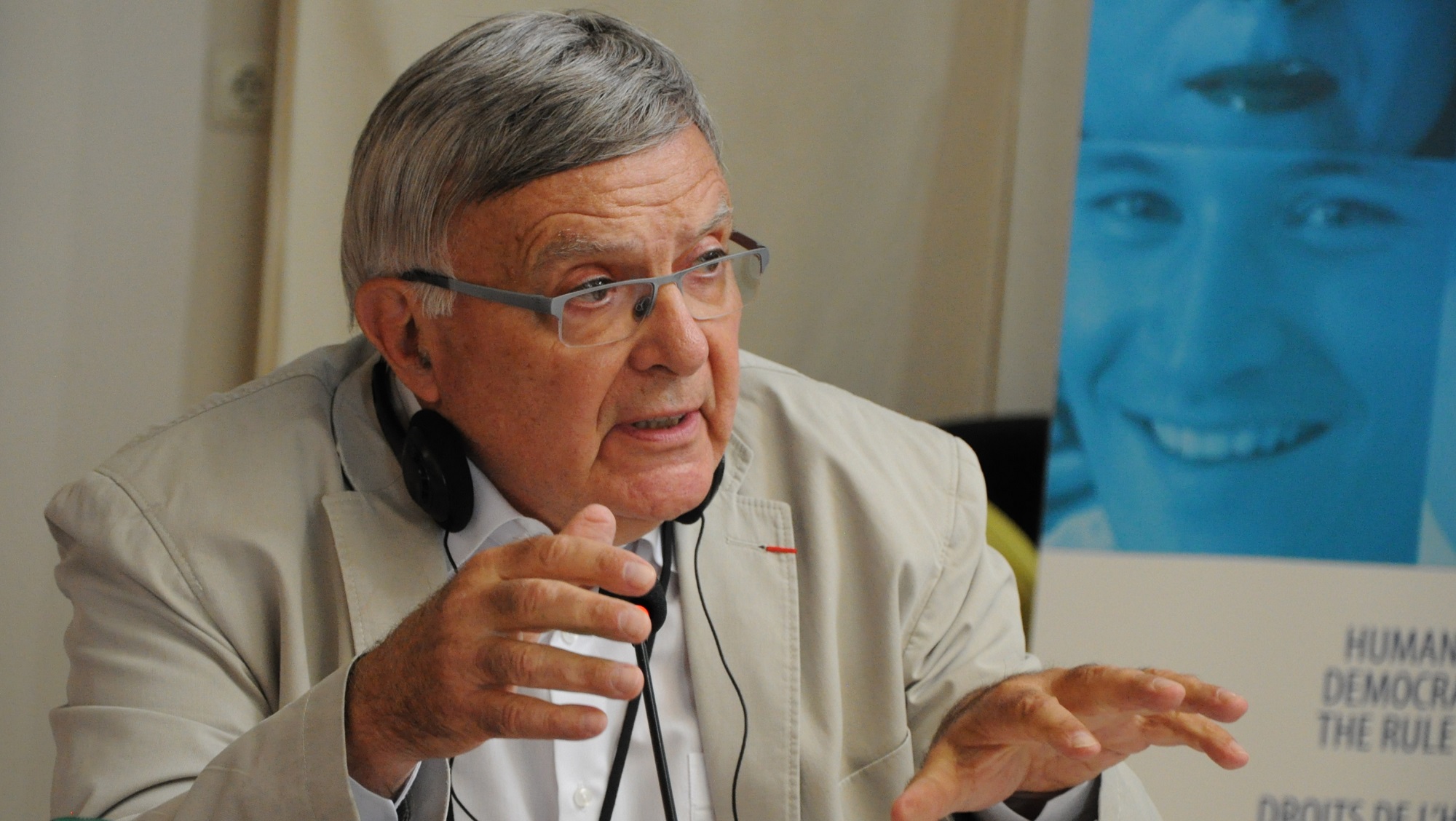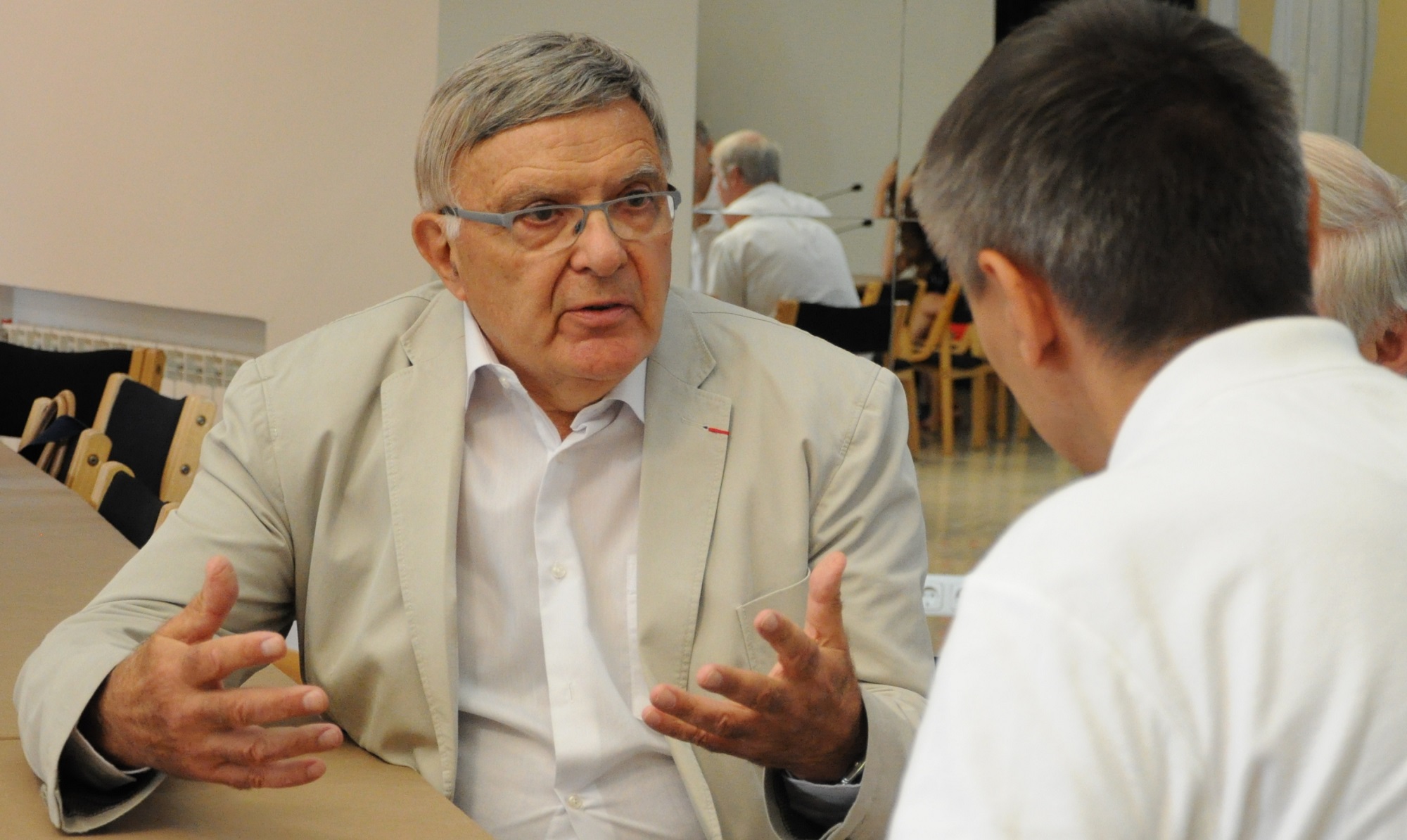"No new obligations and no restrictions..." - state supervision in Robert Herzog’s viewpoint

Robert Herzog, Professor of the University of Strasbourg, expert of the Council of Europe, supported the ideas and approaches outlined in the draft law developed by a group of experts and discussed during a special consultation meeting with representatives of the government, specialised associations and NGOs. At the request of the decentralisation.gov.ua, he analysed several of its provisions.
By Dmytro Synyak 
Recently, the officials, MPs, experts and local self-government representatives have discussed a new draft law, which should finally reduce the number of controlling bodies and streamline the system of state supervision over the lawfulness of local self-government decisions.
How do you assess the path of Ukraine to streamline the system of state supervision over the lawfulness of decisions of local self-government bodies?
- This roundtable meeting is part of a long process. This is the third or fourth meeting of all stakeholders. And, I think we are close to getting the text of the draft law that will satisfy everyone.
So, will the only one body monitor the legitimacy of local self-government decisions?
- Exactly. Moreover, it will have clear functions and a clear methodology of work. In fact, it will be a governmental body that will actively cooperate with local authorities. That is, it will defend the interests of the state, but it will necessarily take into account the interests of local authorities.
This draft law may seem too technical. Does not it lack specifics?
- It is in fact technical. And if some destructive political steps are not made, due to this law, local self-government in Ukraine will receive a significant impetus for development. Please note that no new obligations will be received by the local government after the adoption of this draft law.
What if solution of the "supervisory problem" enters the political area and the second governmental draft law will have the same result as the first one?
- I hope this will not happen, and all our meetings and discussions contribute to this.
How much does the proposed draft law conform to European practice?
- The European Charter of Local Self-Government contains Article 8, which defines the principles of administrative supervision over local self-government activities, but it is made so that there is a maximum balance between supervision and autonomy of local authorities.
Thus, is the model for monitoring the lawfulness of decisions of local self-government bodies in question of a European-type?
- Unfortunately, there is no single model in Europe, and every country should look for its own way. At the same time, a certain framework laid down in the European Charter of Local Self-Government can be adapted to local realities.
Actually, the Ukrainian realities are that hromadas have received a lot of powers and funds, and now it seems that state supervision is not necessary at all...
- I think this is a common misunderstanding of the goals of this draft law and its tools. It does not create restrictions for local self-government, which remains completely autonomous. It will in no way affect the policy of local self-government. It only ensures legitimacy by helping local authorities work exclusively under the legislative procedure.

How is similar supervision performed in EU countries?
- I know the mayor of one great city in France who said: "I don’t care what is in the law, I'll do what I will consider necessary!" Thus, the mechanism of state supervision did not allow him to go beyond the scope of the law. Such supervision in Europe is carried out mostly by prefects. But they deal exclusively with issues of compliance of local self-government acts with legislation. Do you know who actually controls the local authorities? The public! You may also find it hard to accept this idea, but in many EU countries local authorities have a system of internal supervision. A small team controls not only the legality of the acts of its own council, but also monitors the effectiveness of management. And then, external surveillance only determines whether internal supervision is effective. But Ukraine is not ready for such a model, so I have not even mentioned it today.
The cautiousness of Ukrainian local self-government bodies about any governmental supervision can be understood. Not so long ago, until 2014, they felt the enormous pressure from the central authorities, which used for this, first and foremost, all possible legal mechanisms, including inspections by the prosecutor's office. Can this mechanism work against local self-government?
- I know about such cases, I know about the "garbage war" between local and central authorities in Lviv. Let's be frank: the law cannot restrict such things in principle. But at the same time, it should not lead to such cases.
And will it be able to block decisions of local self-government bodies?
- The supervisory body referred to in the draft law does not distribute anything. Supervision and monitoring without the right to make a decision will not allow it to interfere with the work of local authorities. Therefore, only protesting against decisions is meant. Blocking is impossible in such conditions.
The full version is available in Ukrainian – please click HERE
21 November 2024
Громади Хмельниччини долучилися до обговорення реформи старшої школи
Громади Хмельниччини долучилися до обговорення...
15 листопада в Хмельницькому відбулося громадське обговорення впровадження реформи профільної середньої освіти. Захід...
21 November 2024
Програма Polaris провела інформаційну сесію для громад Житомирщини
Програма Polaris провела інформаційну сесію для...
20 листопада у Житомирі відбулася інформаційна сесія Програми Polaris «Підтримка багаторівневого врядування в...
21 November 2024
Стратегія безбар’єрності: експерт розповів про цифрову доступність
Стратегія безбар’єрності: експерт розповів про...
Цифрова безбарʼєрність – один із шести ключових напрямків розвитку, визначених у Національній стратегії зі створення...
20 November 2024
Mayors’ Congress in Paris: at least 7 new partnerships are being established
Mayors’ Congress in Paris: at least 7 new...
Just imagine the scale of the Mayors’ Congress in Paris for local government leaders: 1,200 French mayors are...